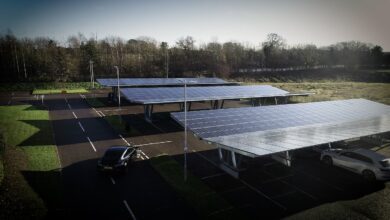
As one of the world’s largest contributors to carbon output, the hotel industry must reduce its emissions by 66% per room by 2040 and 90% per room by 2050 to ensure the industry’s predicted growth does not lead to a corresponding emissions increase.
To curb the industry’s significant impact on the environment, hotels and hospitality venues around the world have adopted Sustainable Development Goals (SDGs).
Find out more about SDGs, and why venues use them as a foundation for creating friendly spaces for guests, the wider community, and the environment.
What are SDGs?
SDGs are the 17 sustainable development goals originally proposed by the United Nations. This was through a shared blueprint for peace and prosperity developed in 2015.
Collectively, these SDGs build on decades of work by countries and the United Nations and act as guiding principles. Under each goal, organisations create smaller targets, with actions that help contribute to the desired outcome.
Sustainable Development Goals for Venues & Hotels
While not all Sustainable Development Goals are directly relevant to hotels and hospitality venues, there are a number of goals that the industry as a whole can directly contribute to achieving:
Goal #8: Decent Work and Economic Growth
Hampered by new waves of endemic and pandemic infections, supply chain disruptions, and labour market changes, global economic recovery is a process far slower than initially anticipated. Hotels and hospitality venues were significantly impacted by the pandemic, and continue with a slow but steady recovery.
While this Sustainable Development Goal is more vastly comprised of targets to achieve higher levels of economic growth and productivity, hotels and venues can help contribute to these targets by;
- Using technological innovations to increase productivity
- Investing in equal employment opportunities for all workers
- Encouraging youth education, training and apprenticeships in hotels and venues
Goal #12: Responsible Consumption & Production
Unsustainable patterns in the way we consume and produce are having devastating impacts on the environment. This includes climate change, loss of biodiversity, and increased pollution. Harvesting, transportation, storage, and processing are all contributing to food waste with 17% of total food wasted at the consumer level.
Hotels and venues can contribute to this sustainable development goal by implementing responsible consumption and production rules. This includes;
- Locally sourcing produce
- Creating seasonal menus
- Training kitchen staff on minimising food waste
- Using on-site gardens for fresh produce
For venues hosting events, this can mean having mandatory numbers for catering purposes, and a nominated food bank for leftover food.
Goal #13: Climate Action
Energy-related CO2 emissions reached their highest level ever in 2021, increasing by 6%. To minimise the impacts of climate change, including rising sea levels, extreme weather conditions, increasing natural disasters, and coral reef erosion, immediate actions are needed.
Hotels and venues can contribute to climate action by;
- Investing in renewable energy sources, including lighting and heating
- Minimising water consumption – including asking guests to make more sustainable choices with optional towel and bedding replacements
- Eliminating single-use plastics
- Opting for digital venue management systems to transition to paperless
Sustainable Case Study: Accor Hotels
Accor Hotels have been an industry champion in sustainable practice, consistently working to deliver quality guest experiences, while creating positive change for community members and the environment.
In 2011 Accor (who also operates Mantra Group), identified 21 areas of business where improvements could be made, setting policies for measurable actions and goals. These included reducing the consumption of energy and water, moving towards carbon-neutral buildings, and dramatically reducing food waste by engaging in more sustainable kitchen practices.
In 2021, Accor continued its commitment by joining the Sustainable Hospitality Alliance, a globally run organisation of hospitality companies that address and tackle challenges of sustainability within the industry.
With more than 5,200 properties and 10,00 food and beverage venues operating throughout 110 countries, Accor’s commitment to the wider SDGs has made significant impacts on the environment and industry as a whole.
Implementing SDGs in Your Venue
The biggest changes come with planning. Start your journey towards greater sustainable practices by first reviewing any current practices in place. Segment different areas of your venue, and identify areas of improvement.
Consider any current suppliers and stakeholders – do they have the same shared vision towards investing in greener practices? Are there any changes you can make to switch to use more local produce or supplies?
By starting small and setting measurable, achievable goals, your hotel or venue will play an integral role in achieving global SDGs. Sharing progress and goals with guests is also a great way to spread awareness of sustainability issues, and show your progress in eco-friendly practices.
Download the iVvy Go Green Guide to Sustainable Venue Practices
Get practical tips and tools to implement more eco-friendly practices in your venue without compromising your guest experience. Click here.









